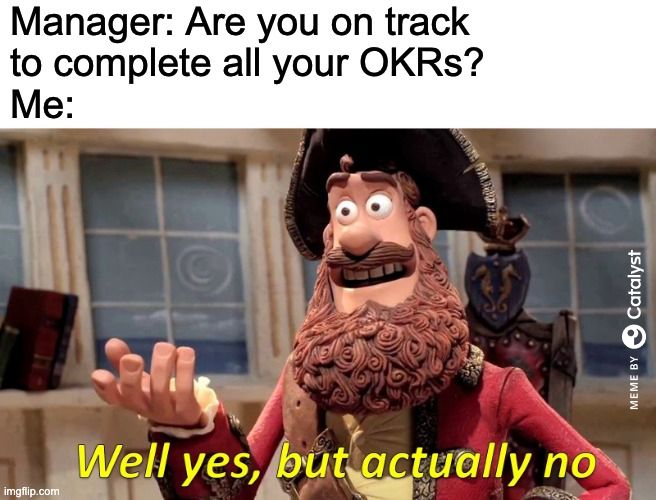Objective Key-Result (OKR) is a framework of approaching a goal/project that ensures that you and your team make 1000s of decisions and steps, while being aligned on a common vision.
This blog will largely explore the key learnings I've gathered from this awesome book on the topic called "Measure What Matters" by John Doerr. If you're curious, this person learnt the OKR framework from top management at Intel and replicated successfully, the same principles - at Google and grew the young startup at breakneck speed with people and products - whilst retaining the core vision of making information easily accessible to all.
The very 1st slide John showed to team Google said OKRS: "A management methodology that helps to ensure that the company focuses efforts on the same important issues throughout the organization"
I'll litter this blog with excerpts and stories that the book explored and I found most helpful.
OKR short intro
Objective is the WHAT is to bo achieved. These are significant, concrete, action oriented and ideally inspirational.
Key Results benchmark and monitor how we get to the objective. Effective KRs are specific and time-bound, aggressive yet reliastic. Most of all they're measurable and reliable.
Where an objective can be long-lived, rolled over for a year or longer, key results evolve as the work progresses. Once the KRs are completed -> the objective is achieved
Thus, OKRs channel efforts and coordination. They link diverse ops, lending purpose and unity to the entire org. This is supremely important at startups or young companies where people absolutely need to be pulling in the same direction
The maker of OKR
Andy Grove, an Intel exec is credited for having created the management system of OKRs when Intel had taken up the responsibility of Operation Crush - a race to win in the 16-bit microprocessor market with their 8086 product in a time where cheaper and less performant products were eating market share.
It was the glorious story of how Intel dumped the business of memory-chip and went all-in on microprocessors and completely "crushed" every other contemporary compute company.
Here, are the 1st tenets of this system, by Dr. Grove himself:
- Less is more
- Set goals from the bottom up
- No dictating
- Stay flexible
- Dare to fail
Here's a free OKR template for your use - link


